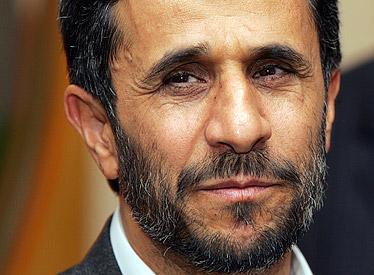American voters are not the only ones who experience U.S. political theater. Nearly every major newspaper in the world covers developments in the 2008 presidential election pitting Republican Sen. John McCain against Democratic Sen. Barack Obama. Perhaps no other story is covered as frequently around the globe. A close second, however, may be the story of Iran, and international efforts to prevent the Iranian regime from developing nuclear weapons. In fact, both of these story lines regularly overlap, as both U.S. presidential candidates pronounce on policy toward Iran. On domestic policy matters, the policy pronouncements of candidates do not themselves influence the issues at hand, as candidates cannot affect real change on such matters until they are elected to office. Barack Obama's social security policy or John McCain's health care plan cannot be instituted until one or the other gains the presidency. However, pronouncements on foreign policy are different, and when it comes to Iran in particular, what the presidential candidates say can have profound implications for U.S. relations with Iran as well as for the country's internal political situation. The presidential candidates tend to treat Iran as if its politics and policies are static and inanimate, invulnerable to outside influence. They debate the possibility of using military force against the country in the same fashion that they debate energy or tax policy. John McCain, Barack Obama, and especially President Bush and his spokesmen -- who never miss an opportunity to reiterate that "all options are on the table" -- do not appear to understand the affect of their rhetoric regarding Iran and military force. They must assume Iran is either not paying attention to such language or not strong enough to do anything about it. Or, worse, they are simply unaware of the implications of their words beyond the domestic political campaign.
U.S. Presidential Candidates’ Bellicose Rhetoric Benefits Iran’s Hardliners

